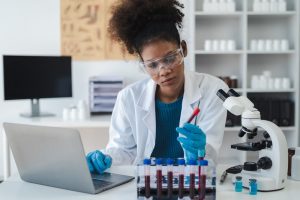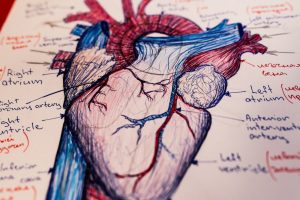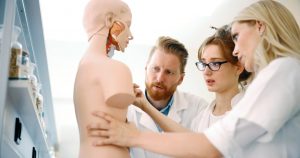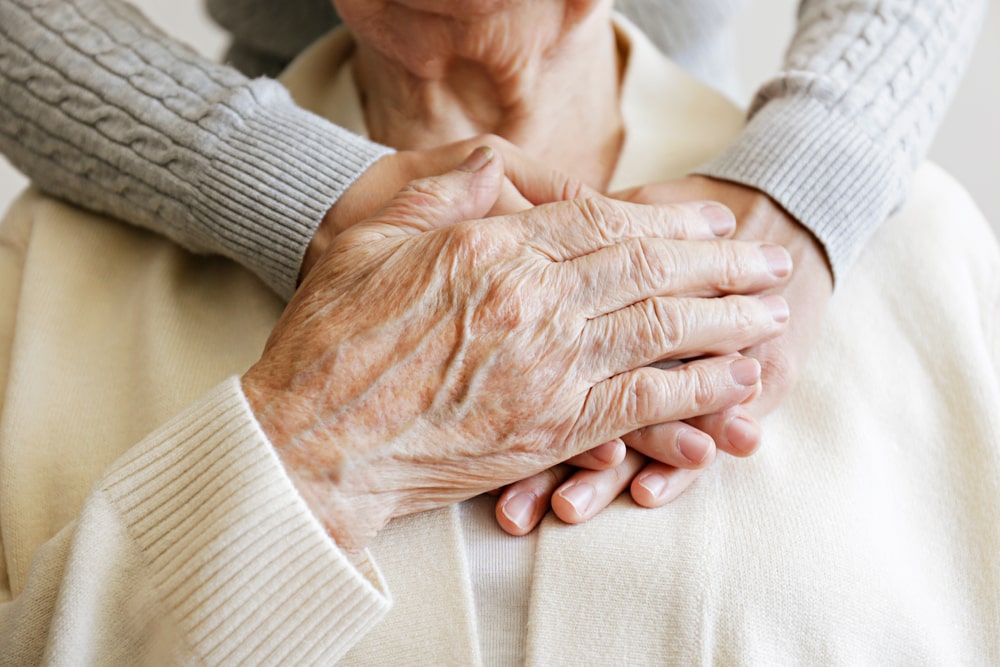If you’re reading this, you’re at least a little bit interested in donating your body to science. To help you make the decision that’s best for you and your family, check out this easy-to-understand FAQ list. And if you have additional questions, contact a trusted local funeral home to help you get more detailed information about state or local donation options.
Let’s get started!
Q: What’s the Difference Between Organ Donation and Whole-Body Donation?
Whole-body donation typically refers to the donation of the whole body to medical or scientific research. Once donated, the body may be used for surgical training, scientific research, and anatomy lessons for medical students, promoting the advancement of medical science.
Organ donation, on the other hand, refers to the donation of organs after death that, if approved for donation, would be transplanted to save a living person’s life.
Q: Is It Possible to Be an Organ Donor and a Whole-Body Donor?
It is technically possible to register as both an organ donor and a whole-body donor. However, when registering for both, applicants should understand that organ donation for transplant will take first priority. This means that if organs are selected and approved for transplant, your selected research facility may refuse the whole-body donation.
However, many registered organ donors are not approved for transplant because of the stringent restrictions and timing required for organ donation. Cancer, heart disease, lung disease, potentially malignant tumors, and other pre-existing conditions often rule out organ donation candidates. In addition, proximity to the hospital or the need to perform an autopsy can also prevent organ donation. Because of these restrictions, many bodies of organ donors remain uncompromised and could still be donated to science or willed to a university after death if the donor wishes.
So, consider your options carefully. If you value organ donation more highly, register for both forms of donation with the understanding that one may not happen. However, if you value whole-body donation to science more highly, consider only registering for that one form of body donation.
Q: How Do I Donate My Body?
The process will be different for each research facility, but always make sure you include the following steps.
Step 1: Talk to family
When considering whole-body donation, the first step is to communicate your wishes to relatives and next of kin to avoid any confusion after your death.
Step 2: Contact research facilities and ask questions
Next, you will need to contact several research facilities where you would consider donating your body. Fill out the necessary paperwork and request educational materials so that you and your family members can understand the specific procedures, requirements, and restrictions of whole-body donation at this specific location.
To be well informed, ask questions about the facility, costs associated with donation, and the procedures of donation. Check this list to find additional questions to ask donation facilities.
Step 3: Share the research facility’s contact information
Once you have everything arranged with your chosen research facility, provide their contact information and any instructions to your relatives. To make the process even smoother for your family, complete a funeral prearrangement with your local funeral home and give their staff all the body donation details, too.
Step 4: Inform your primary care doctor
Finally, you should inform your primary care doctor about your intentions. They can help you write clear directives regarding your medical care wishes that will help your family make healthcare decisions if you should become incapacitated.
Q: How Do I Find a Body Donation Facility Near Me?
To find a research facility near you that accepts whole-body donations, visit the University of Florida’s website that lists whole-body donation programs in each state. You can also organize whole-body donation through private organizations, such as United Tissue Network and Science Care.
Q: How Much Does Whole-Body Donation Cost?
There is no set answer to the question of cost because policies differ among donation facilities. Be sure to consult with your donation facility of choice to plan for costs that will not be covered by the facility.
Often, donation facilities will arrange and pay for body transportation (within a designated distance), eventual cremation, and the return of cremated remains to the family. The family should expect to pay for the cost of any necessary legal documentation (like death certificates) and funeral services conducted before the release of the body to the donation facility.
Under no circumstances will your family receive monetary compensation for a body donation as the buying and selling of bodies is prohibited by federal law.
Q: What Does the Whole-Body Donation Process Look Like?
Some donation facilities allow a certain amount of time after death for a funeral service to be performed. However, some facilities require that notification and transportation of the body occur soon after death. This may mean that funeral services with the body present may not be possible. Make sure you know your specific facility’s policies.
After the death of a loved one, family members should notify the facility of the donor’s death and proceed appropriately. Often, this means coordinating with a representative of the donation clinic and a hospital or hospice healthcare representative, who will determine together whether the body can be accepted for whole-body donation.
Whole body studies are typically completed within 1-3 years, but they can last as long as five years. Upon the completion of study, bodies are typically cremated, and the ashes returned to the family.

Q: Are There Any Restrictions for Whole-Body Donation?
Although universities and medical facilities are in constant need of whole-body donations, most programs reserve the right to refuse donation. For example, organ donors may be refused if the research facility prefers to study an intact body.
Additionally, bodies may not be accepted if they:
- Are significantly damaged
- Are morbidly obese or emaciated
- Carry a contagious or infectious disease
- Have been autopsied
- or for the simple reason that donations are not needed by the facility at the time.
Check with your chosen facility to learn more about specific restrictions.
And that’s it! If you have additional questions, speak to a representative at your preferred research facility. Alternatively, you can partner with a local funeral home to ensure that you get all the answers you need.









